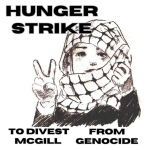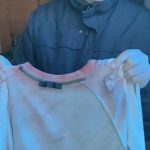On the first day of Ramadan, I visited the Sheikh Jarrah neighbourhood of occupied East Jerusalem.
In May 2021, the neighbourhood gained international notoriety after an Israeli Court ordered six Palestinian families to leave their homes in Sheikh Jarrah to make way for Jewish settlers.
The order generated so much controversy and opposition that, days after the lower Court’s order, the Israeli Supreme Court delayed a decision whether to uphold the order. It did so at the request of Israel’s attorney general.
Perhaps no one did more to organize and galvanize that opposition than Muna El-Kurd and Mohammad El-Kurd. Muna is an activist and her twin brother Mohammad is a writer and poet. Part of the El-Kurd home in Sheikh Jarrah was confiscated in 2009.
During my visit to Sheikh Jarrah, I visited the El-Kurd residence. There, I spoke with Muna (Mohammad was out of the country). Based in part on information Muna conveyed to me in her limited English, I complied a video report on the struggles of Palestinians living on their street in Sheikh Jarrah.
My report is embedded below, at the end of this article.
Today, the legal conflicts in Sheikh Jarrah remain unresolved. Israel’s efforts to ethnically cleanse East Jerusalem continue, and are likely to intensify in coming years unless the international community takes concrete steps to restrain Israel.
Until Israel is held accountable for its illegal annexation of East Jerusalem, Palestinians in East Jerusalem will find it increasingly difficult to protect their homes from violent confiscation.





